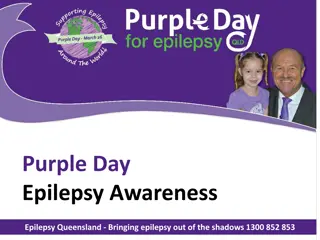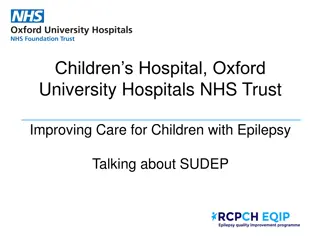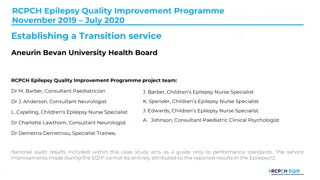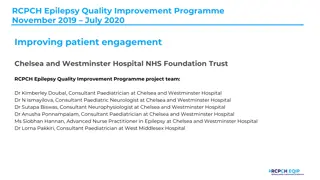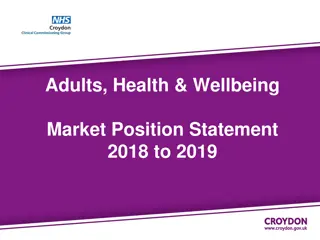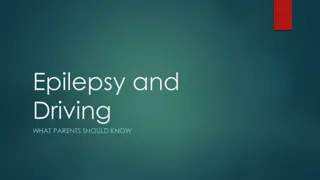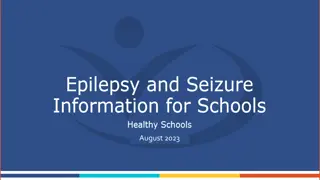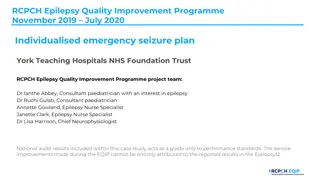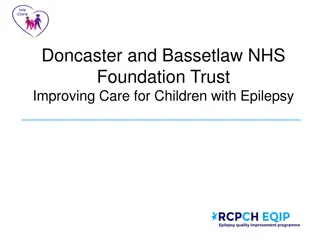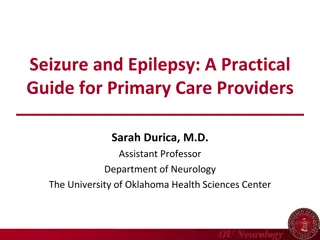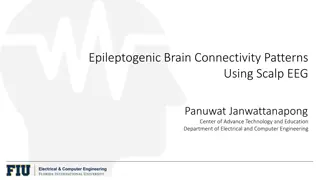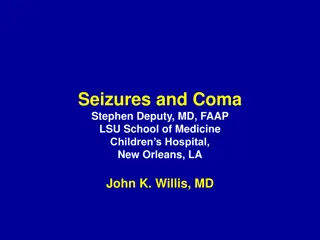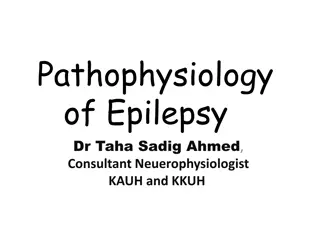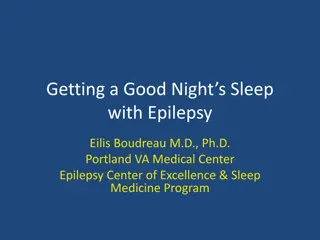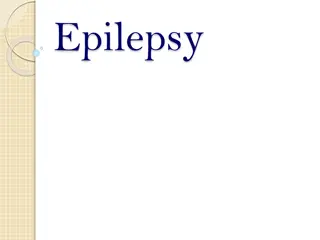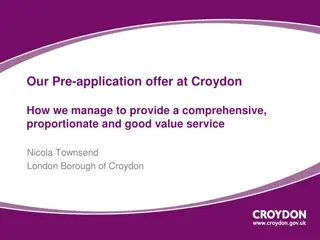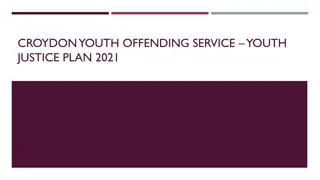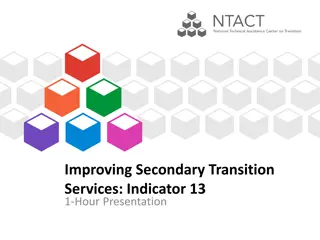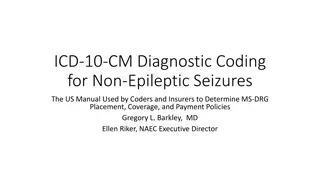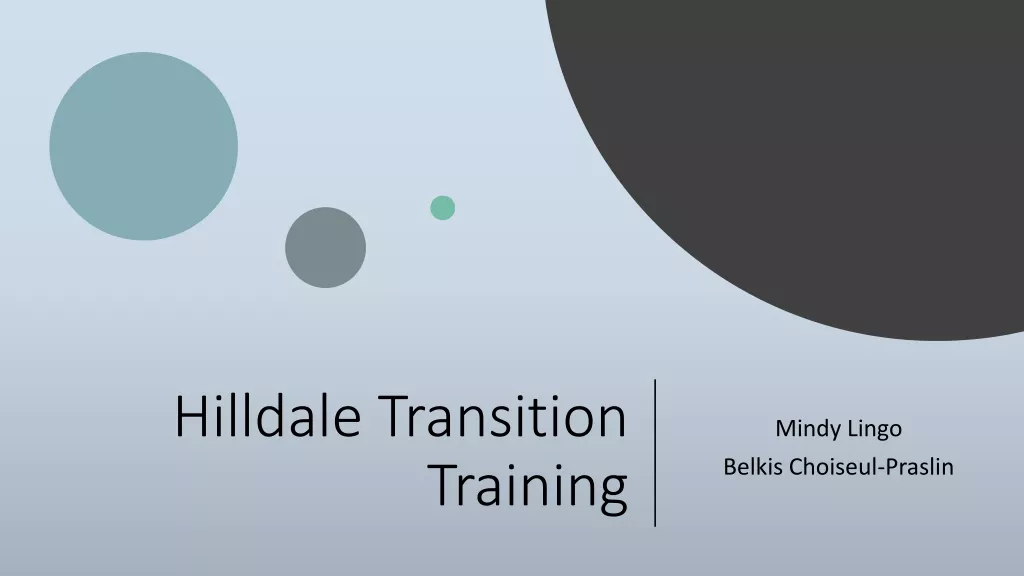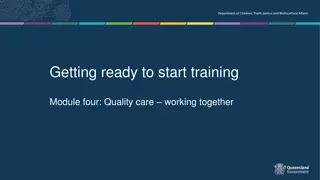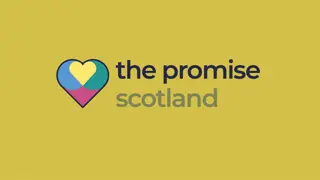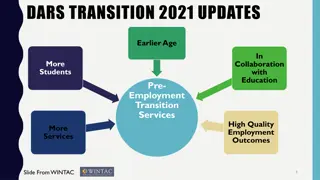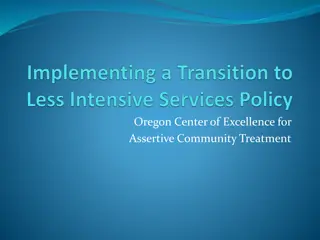Enhancing Care and Transition Process for Children with Epilepsy in Croydon
Improving care and transition processes for children and young people with epilepsy in Croydon is the goal of a dedicated team led by Dr. Afaf Tebbal, focusing on better information sharing, parental involvement, and establishing a seamless transition to adult services. By addressing gaps in understanding and support, the team aims to empower families and enhance communication within the healthcare team.
Download Presentation

Please find below an Image/Link to download the presentation.
The content on the website is provided AS IS for your information and personal use only. It may not be sold, licensed, or shared on other websites without obtaining consent from the author. Download presentation by click this link. If you encounter any issues during the download, it is possible that the publisher has removed the file from their server.
E N D
Presentation Transcript
Improving Care and the Transition Process for Children and Young People with Epilepsy In Croydon
Our Team Dr Afaf Tebbal Paediatric Consultant Anne Makunde Paediatric Epilepsy Nurse Specialist Dr Sherry Fang Paediatric Registrar We are a very small team, 1 consultant and 1 nurse Sherry has now left us for pastures new. We work closely with the other acute Paediatric and community teams. In Croydon we have a caseload of 260 children with Epilepsy.
Our Aim To improve and adapt the transition and information sharing process for the children and young people with epilepsy in Croydon by March 2022.
Background Families and CYP with epilepsies understanding of transition is poor. They reported that they did not know enough about it. Families and carers would express their anxieties of how they and their children would cope within the adult service. Families presumption that transition/transfer to adult services happened after 18 years of age but should actually be from 16 years.
Driver Diagram Primary Drivers Secondary Drivers Change ideas -Parental support group -Youth advisory group -Specific transition clinic with consultant twice/year producing - Leaflet re mental health and support locally in Croydon - Keep a separate database of the progress of the R-S-G process - Leaflet signposting to rights and benefits, and legal . - Share info with GP as they play bigger role in adults care. - Collate info from the specialist schools of what they share with their parents. - Link in with other services for chronic conditions and share resources. - Parental/young peoples feedback . Establish an administrative process of identifying and sending the appropriate form, and processing them. To be aware of what young people value and would like to have in place for better epilepsy care Improve and adapt the transition process for young people with epilepsy at Croydon Collect parental and young people s feedback Empower parents, carer and young people to take charge of their epilepsy Dedicated nurse led transition clinic Dedicated time for transition work for nursing and medical team Better communication within the team Inform adult team of what our current patients needs are for a Smooth transition
Patient and Family Engagement Who is involved? Parents and young teenagers age 14 and above both mainstream and children with Learning needs in special schools How did we involve them? By introducing the RSG questionnaire What did you change as a result of engagement? We needed to change the way we sharedinformation What feedback did you receive? Very little - Questionnaire s .. As has been discussed all the way through this programme. They take up a lot of time and are unreliable.
Examples of your PDSA cycles Aim of the test To get engagement with families, children and young people to determine their level of need for transition Cycle 5: Holding an information afternoon End of March A P S D Cycle 4: bring on board our Drama Therapy Team meeting re plan going forward. Cycle 3: RSG form not returned lots of chasing up not only transition age children need information. A P S D Cycle 2: RSG forms posted and emailed questionnaire - time consuming Cycle 1: Sent up a GOOGLE form with RSG form. It could not be viewed as not combatable with our work computer systems.
What did your test reveal? We thought this was going to be an easy and straight forward project to do with a questionnaire. Very easy to make up a Google questionnaire form. Technology failed us. Google form set up from home but our work computers were not compatible. Sent out by post and email this is extremely time consuming. Some parents very engaging others not so much. Questionnaires take up lots of time for little reward/answers.
Data/Results Email and posted RSG Q s. Sent out google form Realised lots of info needed by families, CYP Looked at info on returned forms Got Drama therapy team involved Decided to hold an information afternoon 1 19 sent Tech Not Only 8 returned compatible
Some questions/comments from the RSG questionnaires Will I ever stop having seizures? Will I be limited in what I can do for a job We don t know anything about the transition process I ve no confidence in teaching son/daughter to be responsible for their own medication My teenager is starting to ask questions I cannot answer!! We need help and advice about being independent I don t understand the difference between children s and adults services I hope this questionnaire will help my daughter going forward
Successes Challenges/Limitations Opening discussions with families Children, young people and Families engagement they want information. Families acknowledgement that things are improving in Croydon (but we still have more to do). Families feel they are being listened to. Working with other teams in the trust. Drama therapy team, adult Epilepsy team. Technology Questionnaire s not reliable Numbers not many returns Lack of engagement from some families Time: holding a caseload and fitting in meetings etc. Admin time don t have any Sickness - unfortunately
Team learning highlights Reflection Terminology is not always compatible. Questionnaire not the quickest or best way to get feedback. Communication is key we are not all working together regularly so we need to keep everyone updated. Drama therapy team are a Brilliant support we are lucky to have them in Croydon. We know
Next Steps We are holding an information sharing afternoon for all school age children. We have put together lots of information packs/leaflets for different age groups We will start holding transition clinics to answer all families and young peoples questions to get them ready for moving on. We will constantly look to improve our systems of working together with our families and CYP.


